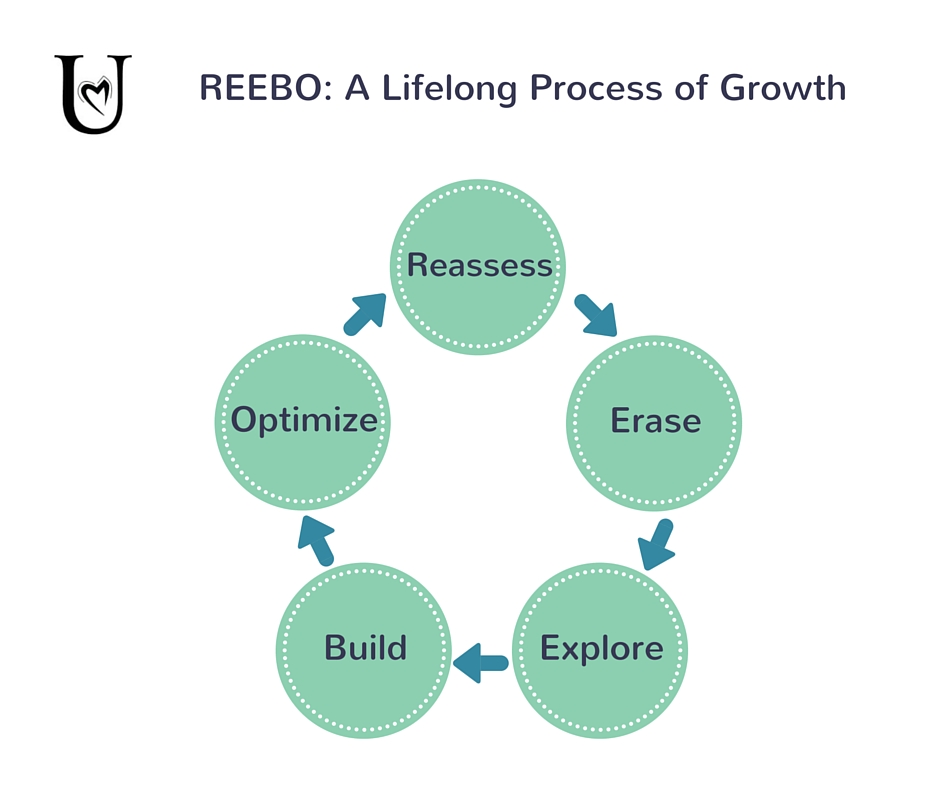 There are natural cycles all throughout life. Each day, we’re greeted by the morning and engulfed by the night. We experience the seasons in a year, and we see the creation and cessation of life in the creatures and humans around us.
There are natural cycles all throughout life. Each day, we’re greeted by the morning and engulfed by the night. We experience the seasons in a year, and we see the creation and cessation of life in the creatures and humans around us.
Yet when it comes to the patterns of how we live our lives day to day, many of us don’t pay attention to the phases necessary to continuously reach our potential. Through grade school, high school, college, to our first job or two, this is more or less set by the structured path of our society. We’re moved along from school to job system, experiencing new environments and challenges along the way.
But once we get past the scripted path is where (for most people) the trouble begins.
The direction for new growth becomes self-directed, and this is when fear of failure and love of certainty—life-saving traits when past humans had to deal with more dangerous situations—can hold us back if we’re not aware. It plays out subtly in little decisions that add up over time to create a path in our lives. The more decisions we make, the more entrenched we become on the path.
I’m excited to introduce a lifelong process of growth that captures the cyclical ebb and flow we all experience in our lives.
This process is called REEBO to represent the five phases: Reassess, Erase, Explore, Build and Optimize.
 Every little moment can be the determining factor that leads to the next. When you allow these five stages to develop and repeat—regardless of discomfort and uncertainty—you will be rewarded with growth. You will live a life that flows continuously and leads to developments better than you could’ve previously imagined.
Every little moment can be the determining factor that leads to the next. When you allow these five stages to develop and repeat—regardless of discomfort and uncertainty—you will be rewarded with growth. You will live a life that flows continuously and leads to developments better than you could’ve previously imagined.
Reassess
This is where the awakening for what may be next takes place; it’s when you start getting inklings that there needs to be a change. While you may not know what’s wrong, there’s a sense that something is off.
This is an important albeit frustrating part of the process. The key is to not ignore, numb or mask the feeling of uneasiness, but to stay open, to question and to be patient.
Many people fluctuate at stagnancy points in and around Reassess and Optimize (the preceding stage and last stage in mentioned in this article). They stay with what they know, and despite an unsettling and underlying feeling that something needs to change, they don’t dedicate the time and energy to figure it out. Some people distract by overemphasizing other areas of their life, such as career and relationships, or through constant entertainment like social media and TV, or piling on the extracurricular activities. Read more on Reassess.
Erase
With the right questions, patience and time for reassessment, then comes the need to let go. The Erase stage can be painful for many people, as it involves letting go of a core belief, identity, role, project—one that may have been integral in the past but is now outdated. This phase is the process of unlearning something that may have worked for you before but is no longer working. Once you figure out the source, you must erase it from your life to make room for a new, better-fitting alternative.
Even when it’s for the best, many of us have difficulty letting go. Sometimes it’s the fear of missing out, or the belief we’re giving up. Sometimes we believe that how things are now is the only way things can be. Maybe it’s the need to have a replacement before we let go, or the inability to let go because of guilt. Some people are holding on to so many outdated aspects in their life that they feel weighed down, overwhelmed and stuck.
Many people are afraid of the emptiness, confusion, and potential meaninglessness that result after they erase. They attempt to avoid the temporary state of what may feel like starting over. Until you are willing to erase what’s not working in your life, you won’t be able to move forward. When you cut out the ill-fitting or outdated aspects, it frees you up to explore what might work better. Read more on Erase.
Explore
In this stage you explore what might be a better replacement for what you erased. The blank space you’ve created allows for exploration of new adventures. This could be anything from a new relationship, project, hobby, career, activity, or exercise routine. Explore is a stage of trials and errors, where you try different things and find out what you like and what’s not for you. It’s like trying on different shoes and identifying what’s fun, what sticks, what you’re good at, and what you enjoy.
This can be a scary time for people, especially when the stakes are perceived to be high. Failure is inherent in this phase, as you try out activities for the first time and awkwardly learn how things work. It’s important to not take yourself too seriously and to go with the flow of energy you feel. There is no binding decision that needs to be made in this phase.
Energy will be higher when if you’re going in a direction that feels good and positive. Energy will feel lower and more difficult if you’re going the opposite way. With enough exploration and time, you’ll eventually find something that feels exciting and represents your new direction of meaningful progress in an area of your life. Read more on Explore.
Build
Once you found something that represents your new direction of meaningful progress, then comes what may be the least glamorous part of the cycle. Whether it’s building up new skill sets, developing a new relationship, or starting a new career or venture—many worthwhile and meaningful initiatives can take years of hard work, sweat and tears.
And in the daily grind, it’s easy to lose track of the bigger picture. Some people give up or pause prematurely, unsure if they’re going the right way in the thick of the uphill endeavor. It’s like how all of us have panicked just minutes before we reach where we are trying to go. For many of us, this stage is uncertain; it’s freckled with imposter’s syndrome, and perhaps with financial worries.
Building will be a meandering path. What worked for others may not work for you. You’ll seemingly take one step forward and three steps back. You’ll need to try, fail, and try again. You’ll need to learn from your mistakes and adjust your strategy. It’s with many little actions and persistent, continuous effort that creates great relationships, businesses and products. Read more on Build.
Optimize
When you’ve built the foundation of something great, then comes the stage when you can relax a bit while still making meaningful progress. The heavy lifting is done, but there are still optimizations, efficiencies and tweaks that can be made.
This stage is where people start to recognize you as an expert in something. This is the sweet spot—with public recognition, reputation, stability, commitment, benefits and financial reward.
The stability and perks come with a catch. It’s easy to become too comfortable. It’ll be time to move on to the Reassess stage again at some point in the future. Many people stay here until there is simply nothing more to optimize in a meaningful sense and they reach a stagnancy point. While you can enjoy the Optimize stage while it lasts, it’s best to keep your eye out on the horizon and reassess what might be next on your lifelong journey of meaningful progress. Read more on Optimize.
The discomfort from crossing different parts of the process is why many people get stuck.
Refusing to move to the next phase is what begins the descent into stagnancy. Eventually the hands of progress come to a halt. The stagnancy point is both alluring comfort and slow suffocation. It can happen at any point in the cycle, but stagnancy most commonly happens after the Optimize stage (before the cycle repeats once again with Reassess) due to a preference for aspects of certainty, prestige or financial stability.
The key is to pay attention to the intricacies of the stage you’re in and listen to what the deepest part of you knows to be crucial in your path of development.
 If you do that, you will become an ever-evolving, true and continuous best version of yourself. You will accomplish far greater things than you would’ve previously thought to be possible.
If you do that, you will become an ever-evolving, true and continuous best version of yourself. You will accomplish far greater things than you would’ve previously thought to be possible.
It is my hope that you embrace REEBO (Reassess, Erase, Explore, Build and Optimize) as a lifelong process in living and building a meaningful life for yourself. It’s a process that will require your dedicated effort and investment, but I’m working on developing materials and resources to break it down in manageable pieces and help as a guide. I’m currently expanding and gathering stories around this process, and would love if you followed along.
If you’re interested in receiving the latest updates on the book I’m working on with expanded details and strategies around the five stages of REEBO, sign up for the email list below. Thank you for reading and supporting my journey of meaningful progress and contribution to the world.